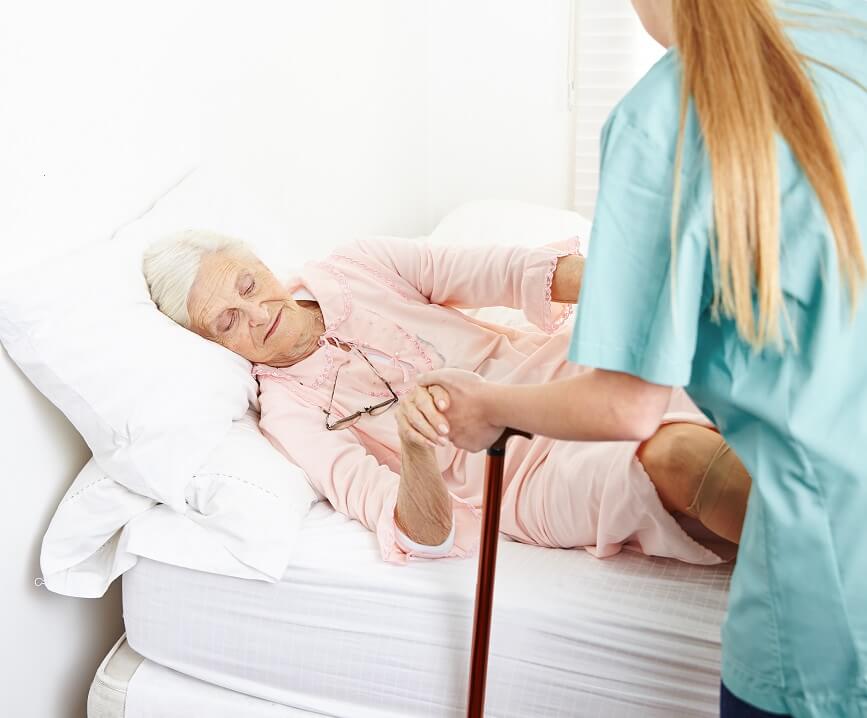
Page contents
End of life care is the term used for the support and care people with life-limiting conditions receive in their last years, months, weeks and days of their life. The aim of end of life care is to help a dying person live as well as possible until they die while supporting family and friends through the difficult time.
End of life care involves palliative care, which includes managing the physical aspects of your condition, such as pain and other symptoms, and providing emotional, social and spiritual support in a way that fulfils the patient’s and their family and friends’ needs and wishes.
Palliative care takes a holistic approach, caring for the ‘whole’ person.
Where you receive end of life care depends on your needs and preferences. You can receive end of life care in your own home, at care homes, hospices or hospitals. Regardless of where you want to spend your last days, you are entitled to receive high-quality care to ensure a ‘good death’.
Generally, a ‘good death’ means that the dying person was treated with dignity, compassion and respect by their care workers and was kept clean and comfortable in familiar surroundings with people who were important to them close by.
When does end of life care start and how long does it last?
The short answer is that you should begin to receive end of life care when you need it. When it is needed and how long it lasts can vary greatly from person to person.
Some may have been diagnosed with a terminal illness and are expected to live for many months, while someone who has been in a severe car accident may only be expected to live for another day, or even hours.
Who is it for?
It can be very difficult to predict when someone is likely to die but end of life care is for people who are considered to be in the last 12 months of their life, including those showing signs of imminent death.
Those at the stage of needing end of life care could be:
- People with terminal illnesses such as cancer or dementia
- An already frail person with conditions that mean they are nearing end of life or at risk of suddenly worsening significantly
- Someone with life-threatening conditions as a result of a severe accident
Because there are many different scenarios in which a person would be nearing death, end of life care could last for years down to only a few days.
Where can you get end of life care?
You can receive end of life care in several different settings, organised by your palliative care team.
In a care home
Receiving end of life care in a care home is an option as many care homes offer this service. The care home staff can help you with personal care, and some care homes offer skilled nursing care, known as a nursing home, and specialist care as well.
It is important to check whether the care home has previous experience of end of life care and how it is provided to ensure high-quality care.
Hospice care
Hospices provide care to people who have been diagnosed with a terminal illness with the aim of enhancing the patient’s quality of life through a holistic approach. Hospice care is not tied to a specific location, and can be provided in your own home, in a care home or you can visit the hospice for a day.
Hospice care is provided by a team of doctors, nurses, trained volunteers and specialists.
At home
You can usually receive end of life care in your own home through regular visits if this is your preference. Speak to your GP to find out if there are end of life home care services available in your area.
In hospital
If you choose to receive end of life care in a hospital, you will be cared for by the healthcare professionals at your ward, such as doctors and nurses. Hospitals usually have a specialist palliative care team involved in your care too.
Who provides end of life care?
Your needs, wishes and location decide what health and social care professionals will provide your end of life care. In addition to a medical team, your family and friends may be involved in your end of life care too.
Health and social care professionals include:
- Hospital doctors and nurses
- Your GP
- Community or district nurses
- Social care workers
- Specialist palliative care professionals
- Counsellors and therapists
- Chaplains and other spiritual care professionals
- Care home staff
If your wish is to receive end of life care in your own home, your GP is responsible for your care and community nurses make visits.
In this situation, family and friends may have the opportunity to be more involved in your care.
Palliative care and end of life care
Although palliative care is included in end of life care, you can receive palliative care before you are thought to be in the last year of your life.
Palliative care is the care and support a person receives to manage an incurable illness, also known as terminal and life-limiting, such as cancer or dementia or other progressive illnesses.
It includes managing physical symptoms, offering emotional, spiritual and psychological support, social care such as washing and dressing as well as support for family members and friends.
Palliative care can be provided to you at any stage of your illness to help you live as well and comfortably as possible and can be provided for years.
Finding end of life care services
If you or a loved one is nearing end of life, the first step is to contact your GP who will be able to talk through the various options with you and give you all the information you need. Your GP can tell you what local care services are available and how they are provided.
At carehome.co.uk, you can find care homes in your area that specialise in end of life care.
If you have not yet put a power of attorney in place, it is advisable to do so in case the person approaching the end of their life loses the ability to make decisions for themselves.
Find your ideal care home
- Explore a wide range of care options and facilities
- Read independent ratings and reviews
- Connect directly with care homes to book a tour and discuss your needs

